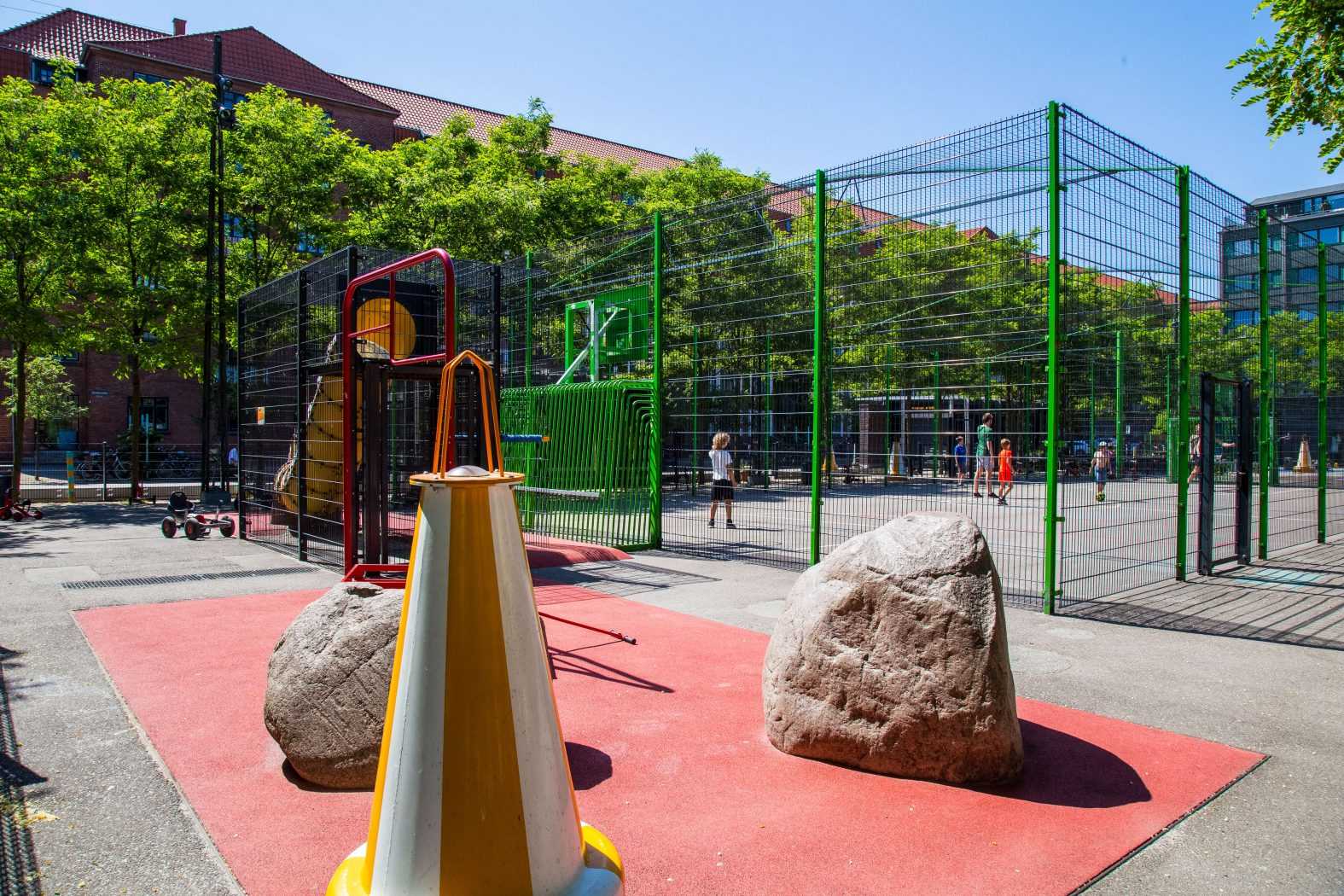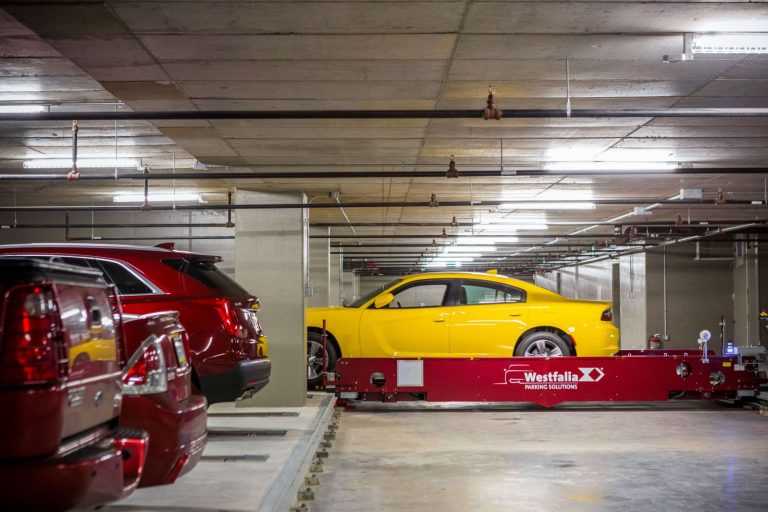Environmental Benefits of Automated Vehicle Storage
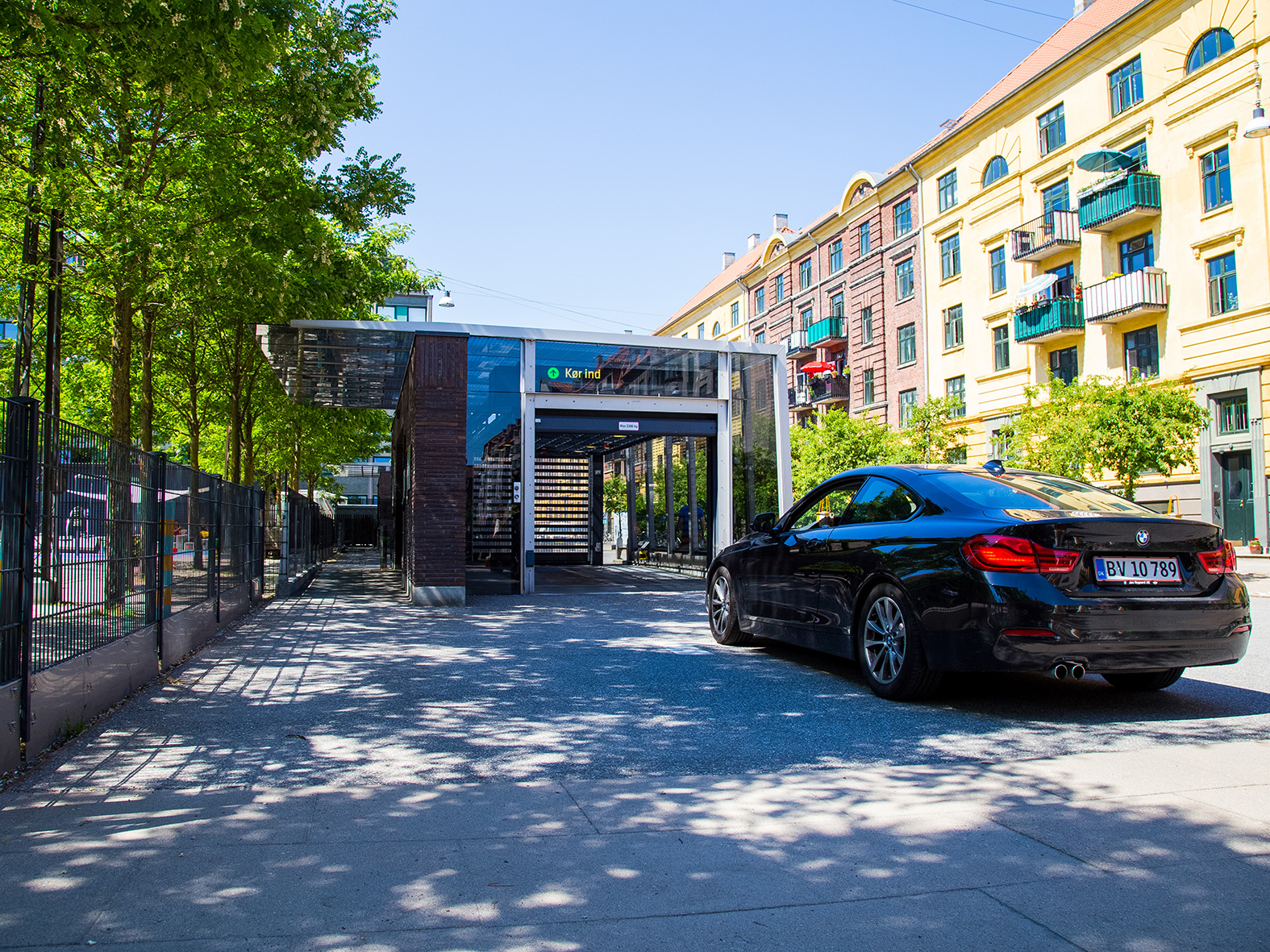
Global urbanization continues to be one of the defining trends of the 21st century. According to a report from the United Nations over half of the world’s population resides in urban areas, and projections indicate this number will rise sharply as an additional 2.5 billion people are expected to join the global urban population by 2050. Currently, more than 40 megacities (cities with populations exceeding 10 million) exist, and this figure is only growing.
Such growth presents critical challenges for urban sustainability. One of the most pressing issues that cities face globally is how to manage increasing numbers of vehicles competing for limited space. As urban populations grow, the need for sustainable parking solutions has never been more urgent.
7 Reasons Automation is the Best Green Parking Solution for Urban Environments
As cities grow, the need for efficient and environmentally friendly solutions becomes more pressing. Automated parking systems not only save space but also offer a range of environmental benefits that contribute to creating more sustainable urban landscapes. From reducing emissions to preserving valuable green spaces, these systems are designed with the future in mind. Below are just a few ways automated parking systems can help cities address their environmental challenges while optimizing parking efficiency.
1. Saving Green Space
City green spaces not only improve surrounding property values but also play an active role in enhancing air quality. Automated parking systems store the same number of cars in a fraction of the space required by traditional parking ramps or lots, freeing up precious urban green spaces. This helps cities prioritize environmental sustainability and livability.
2. Land Use Efficiency
Automated parking systems can be constructed in spaces that are typically too small or irregular for conventional parking solutions. This makes urban land use more efficient, a key factor in sustainable city planning. Additionally, the smaller space requirements can expedite permitting processes and open up new opportunities for urban development where regulations demand a minimum number of parking spaces.
3. Lower Embodied Energy
Due to their compact design, automated parking structures use significantly fewer resources to build compared to traditional parking structures. This reduction in materials not only lowers the environmental footprint of construction but also contributes to long-term sustainability in urban development.
4. Reduced Emissions
Research shows that idling and slow-moving vehicles generate more CO2 and other harmful emissions. Conventional urban parking systems promote this behavior as drivers circle to find spots and navigate inefficient parking structures. Automated parking systems eliminate these issues by parking cars directly, reducing vehicle emissions by up to 80% and helping cities meet sustainability goals.
5. Improved Urban Air Quality
By reducing vehicle emissions, automated parking also improves air quality in urban environments, leading to healthier, cleaner cities.
6. Reduced Heat Island Effect
Asphalt parking lots contribute significantly to the “heat island effect,” where urban areas become significantly warmer than surrounding rural areas. Automated parking systems can be integrated into buildings or constructed underground, reducing the amount of heat-absorbing surface area and mitigating this issue.
7. Water Quality Protection
Automated parking systems reduce the surface area required for parking, leading to less stormwater runoff and improved water management. Additionally, these systems can be equipped with oil interceptors to prevent pollutants from entering groundwater and stormwater systems.

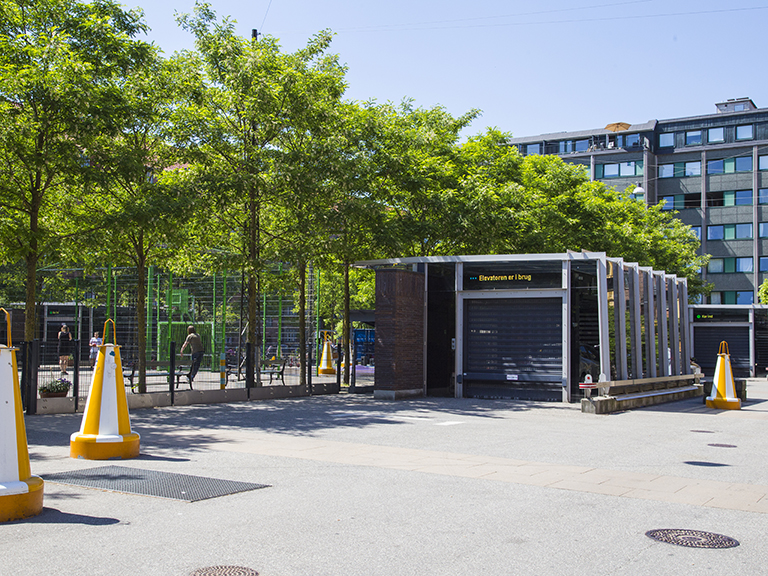
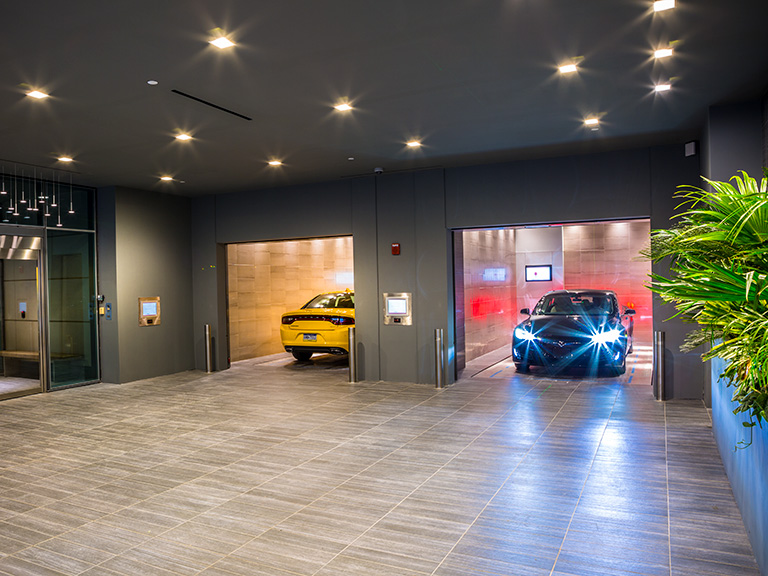
Looking for Sustainable Parking Solutions?
Automated parking systems help cities reduce emissions, save space, and promote sustainability. Interested in seeing how our systems are making an impact? Explore our case studies for real-world examples, or get in touch with our team to learn how we can help make your next project more sustainable.
